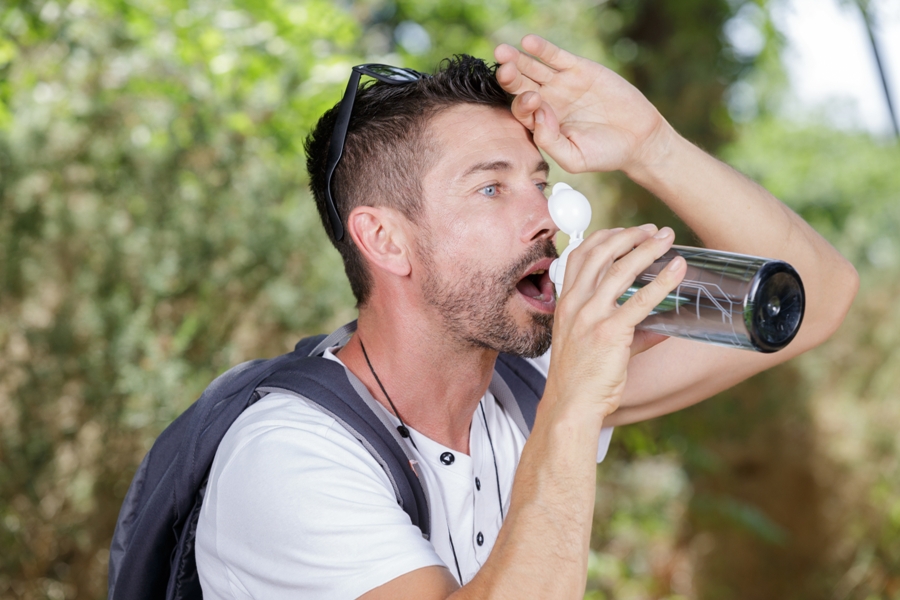What Happens To Your Body After You Step Outside
When was the last time you went outside — not just to retrieve the mail, but for the sheer pleasure of it? If you don’t get outside very often, you might want to change your habits. Spending time in nature is one of the best things you can do for your health.
You Get a Dose of Vitamin D
Vitamin D is an essential nutrient for life. We need it for bone health, calcium regulation, and disease prevention. Most people don’t get enough of this important vitamin, though, as it’s difficult to get your RDA of vitamin D from food alone. The good news is, however, that your body naturally produces vitamin D. Similar to how plants use sunlight to make their own energy, animals use sunlight to synthesize vitamin D. 10-20 minutes every day should be enough to get what you need.
Be aware that sunscreen interferes with vitamin D absorption. While sunscreen is important for preventing skin cancer, be smart — don’t put it on right away. Instead, spend ten or fifteen minutes in direct sunlight, and then put your sunscreen on before you burn. That way, you’ll get the best of both worlds.
Your Eyes Get a Break
Are you constantly working on your laptop or fiddling with your phone? Gadgets might help you stay productive (or unproductive), but they’re bad for your eyes. If you spend too much time staring at a screen, you can experience eye strain and other vision problems. When you go outside, your eyes get a chance to recover. If you suffer from headaches during the workday, it’s probably due to screen-related eye strain. Step outside for a few minutes to get relief. You will also find that your focus and performance improve afterward — especially helpful for students!
You’re More Likely to Exercise (and Enjoy It)
Fresh air is invigorating, and you’re more likely to want to move around when you’re in green, open surroundings. Studies have found that people who exercise outdoors enjoy their workouts more and are more likely to stick with their exercise regimen than gym-goers. You don’t have to be into intense workouts to get the benefits of outdoor exercise, either — try taking a stroll in the woods or playing a game of tag in the yard with your kids.

Your Mood Improves
Mood disorders are very common in our indoor-dwelling society. Modern medicine has come up with lots of effective solutions for problems like anxiety and depression, but nature is still one of the most potent antidepressants out there (and it’s free). Doctors aren’t sure why yet, but people tend to be happier when they’re getting regular exposure to sunshine and fresh air. When you spend time outside, your anxiety and stress levels go down and feelings of optimism go up. Next time you feel blue, nature therapy might be just what the doctor ordered.
Your Focus Sharpens
Spending time in the great outdoors can help you kick your brain fog and concentrate better. Studies have found that kids with ADHD perform better on tasks after they’ve spent time in a green, outdoor space. Nature can also spark your creativity, so if you can’t come up with a solution to an annoying problem, try taking a long walk in the woods for inspiration.
You Sleep Better at Night
Electric lights can really mess with our sleep cycles. Most people keep their houses brightly lit well after sundown, which can confuse your brain and make it harder to fall asleep later. Using phones, computers, and TVs at night compounds the problem. Recalibrate your body by spending time outside in the natural light, and you just might find that your insomnia goes away.
Sometimes, the best things you can do for your wellbeing are also the simplest. The solution to your insomnia, stress, and eye strain (among other problems) might be as close as your backyard. Spend some time in nature today, and see if it makes a difference in how you feel!




















Leaver your comment